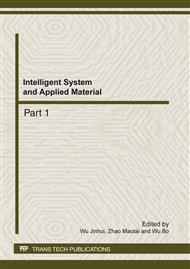p.1060
p.1065
p.1070
p.1075
p.1079
p.1084
p.1089
p.1095
p.1100
Passivity–Based Control of Photovoltaic Grid-Connected Inverter
Abstract:
Photovoltaic (PV) grid-connected system requires the inverter possesses excellent dynamic and static characteristics. In the view of the mathematical model of the inverter is nonlinear, we will adopt a kind of nonlinear control strategy called Passivity–Based Control (PBC). First we establish the standard Euler – Lagrange (EL) mode for inverter, then we also prove that this inverter is strictly passive. Based on passivity of inverter, we can redistribute the system energy, and adopt the approaches of injecting damping and decoupling to improve system performance. In this paper, we can control the active and reactive power of system to make system can fast track the PV array maximum power point, and possess the capacity of compensating the reactive power. Simulation results show that passivity-based control method can make the inverter possess better robustness and dynamic.
Info:
Periodical:
Pages:
1079-1083
Citation:
Online since:
February 2012
Authors:
Price:
Сopyright:
© 2012 Trans Tech Publications Ltd. All Rights Reserved
Share:
Citation:


